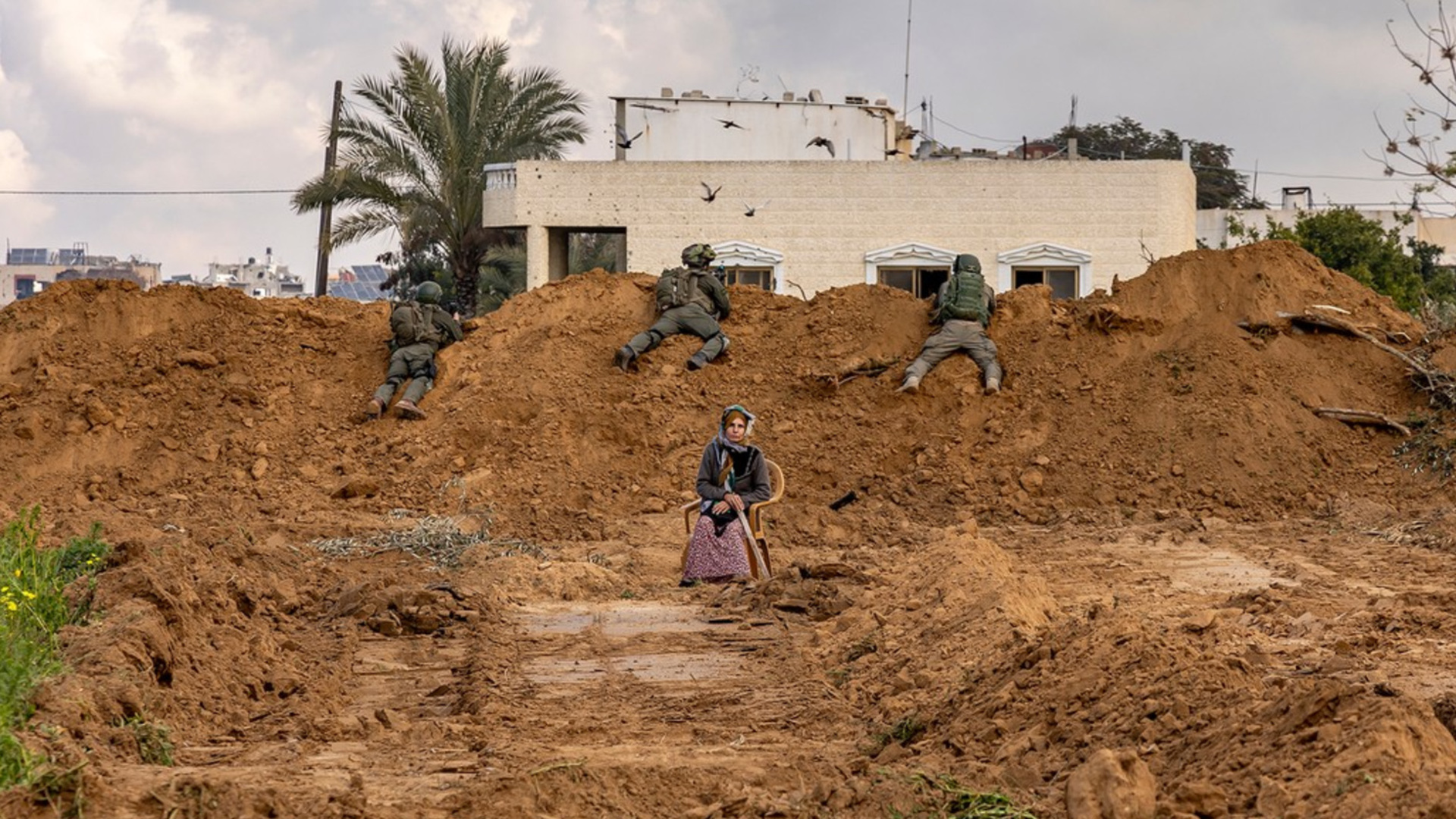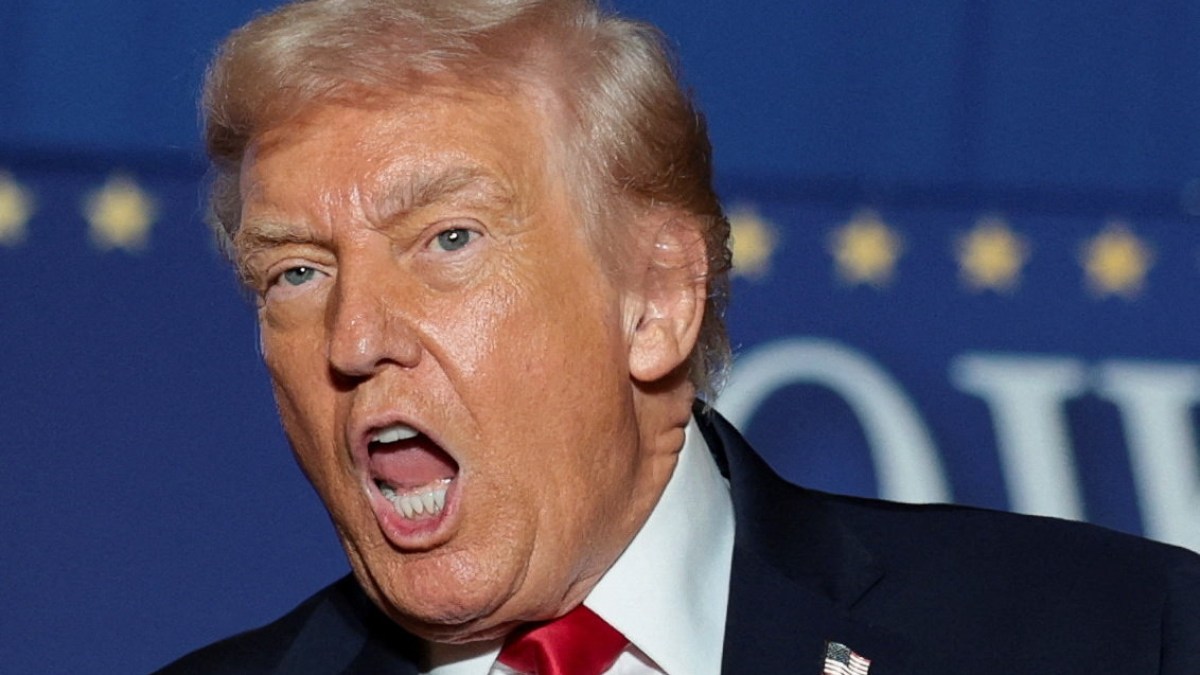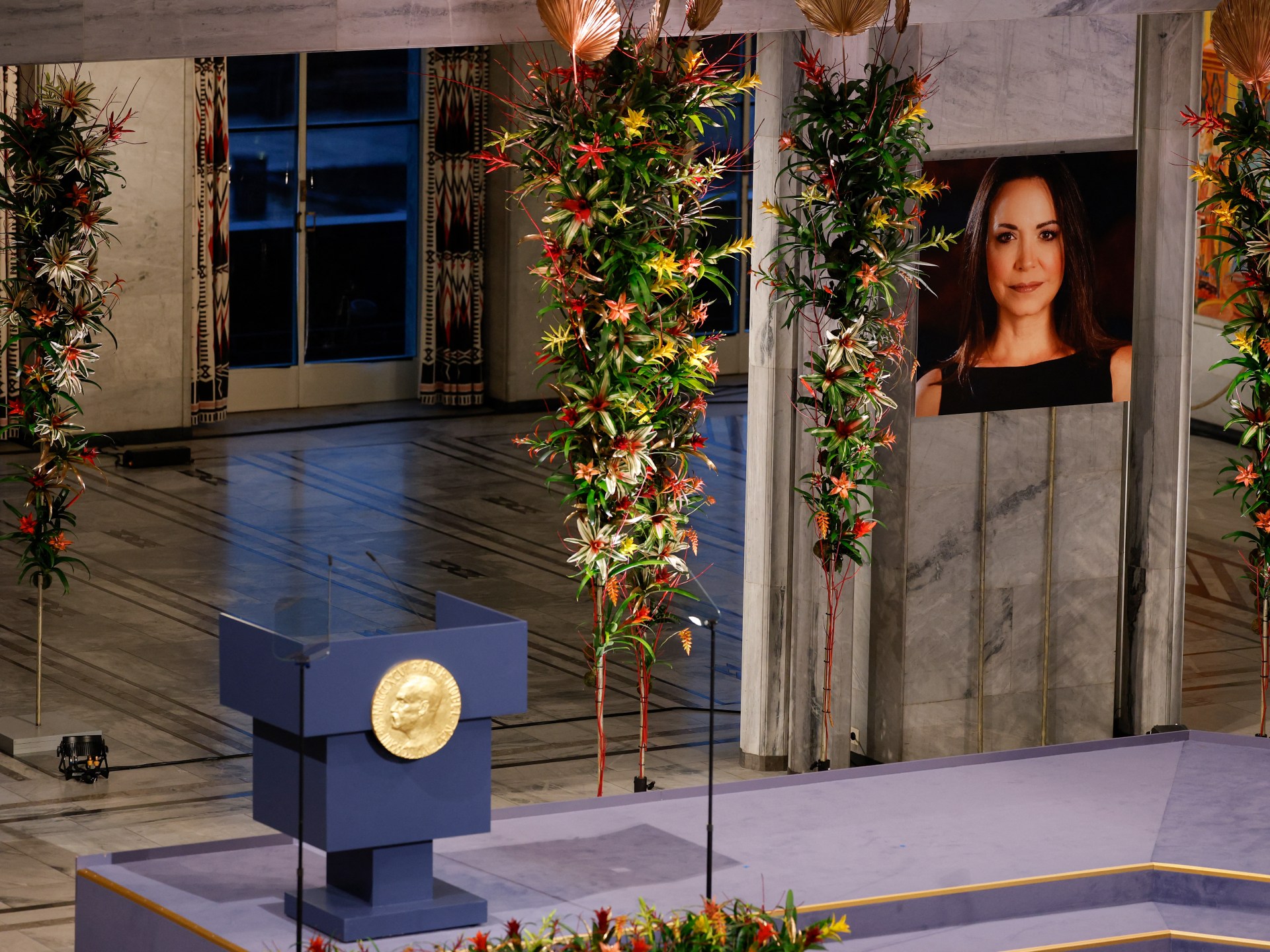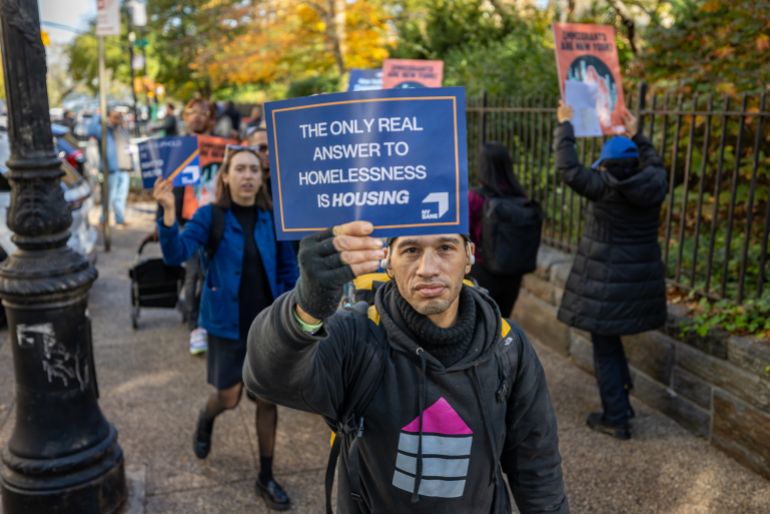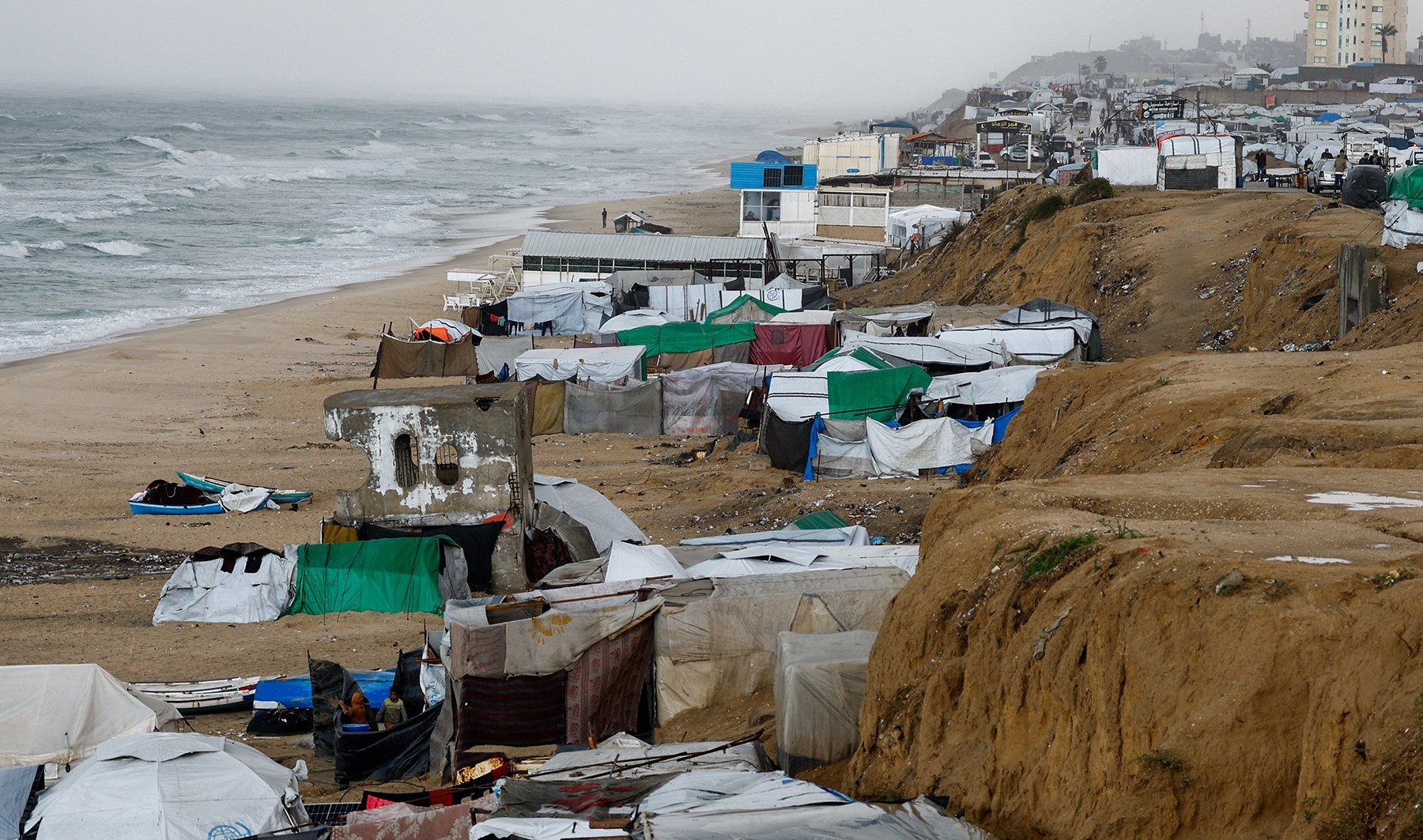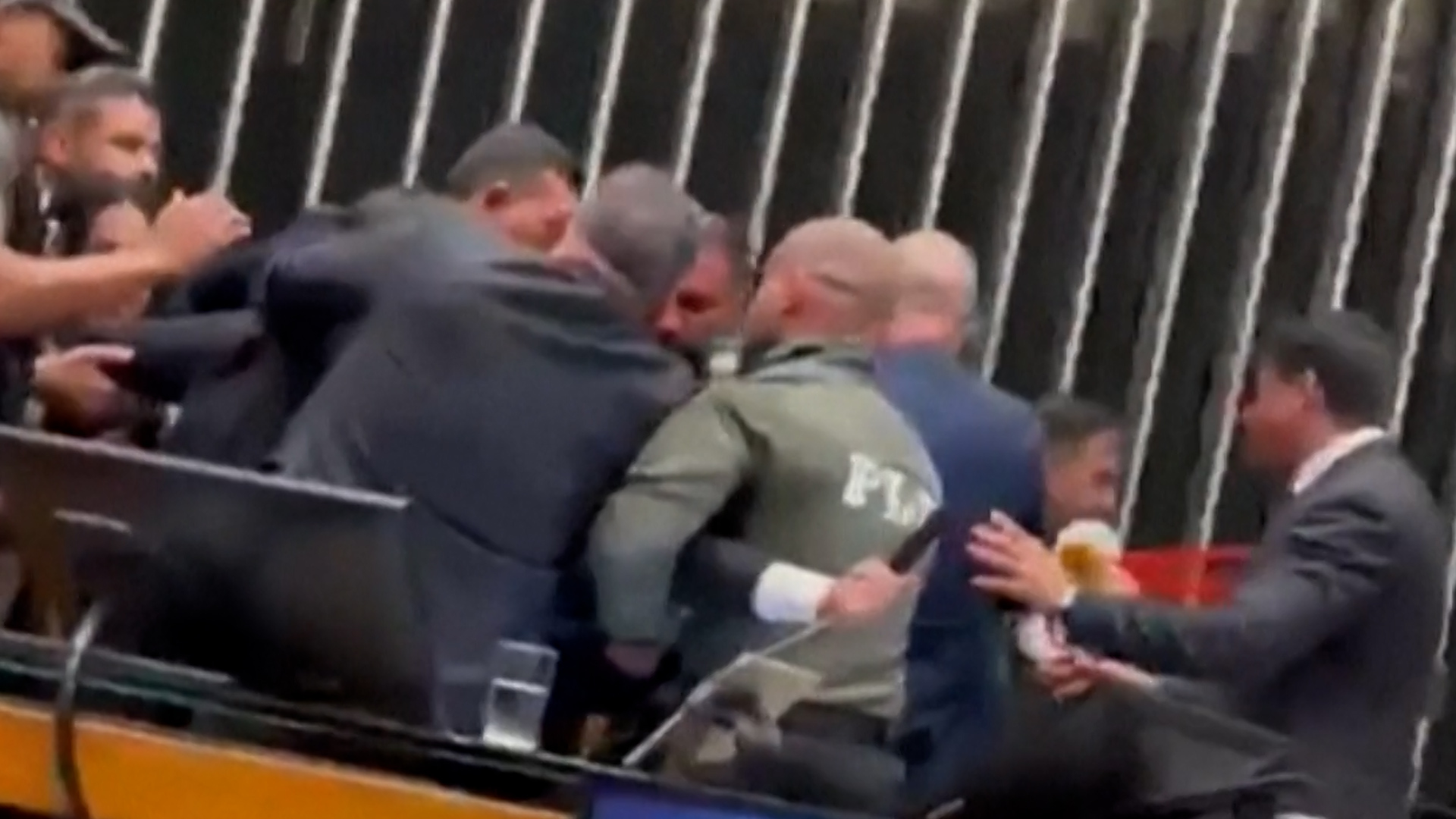United States President Donald Trump spoke to US news outlet Politico in an interview at the White House on Monday, during which he made several strong claims about the state of the economy, the threat he claims is posed by drug gangs in Venezuela, and his popularity among Black Americans.
Then, a day later, Trump spoke about immigration and affordability at a rally-style speech, which lasted for 90 minutes in Pennsylvania, during which he launched a scathing attack on Ilhan Omar, the US’s first Muslim congresswoman, who he claims is in the country illegally.
Recommended Stories
list of 4 itemsend of list
We fact-check some of the claims Trump made during the interview and the speech.
Claim: Trump inherited the ‘worst inflation in history’, the economy is thriving now
During the Pennsylvania rally, Trump claimed that he had inherited the “worst inflation in the history of our country” from former president, Democrat Joe Biden.
In the Politico interview, Trump said: “I inherited a mess. I inherited a total mess. Prices were at an all-time high when I came in.”
He also told Politico: “If you think of gasoline a gallon, they had it at $4.50, almost $5.00. You go to some of the states, you had it at $6.00. We hit, uh, three states two days ago, $1.99 a gallon.”
The facts
Philadelphia-based nonprofit Factcheck.org wrote in January this year that while inflation did rise under Biden, Trump did not, in fact, inherit the “worst inflation” in history.
The annualised inflation rate was below 3 percent during the six months before Trump took office in his second term.
The organisation explained the rise in inflation under Biden was partly down to the economic damage caused by the COVID-19 pandemic.
According to Factcheck.org, the Consumer Prices Index (CPI) rose from 5.4 percent to 9.1 percent in the 12-month period ending in June 2022. But this was far from the worst the US has experienced. That was in the aftermath of World War I, when inflation hit 23.7 percent in June 1920.
In March 1980, inflation hit 14.8 percent, marking one of the most severe spikes in consumer prices in modern US history.
Trump’s statements about petrol prices are also slightly misleading.
In the US, the average price of petrol – called “gas” in the US – was $3.05 per gallon (3.8 litres) in November this year, according to the US Energy Information Administration (EIA). According to online marketplace Choose Energy, the cost per gallon ranged from $2.41 in Oklahoma to $4.53 in California as of December 3.
The $1.99 price cited by Trump applies to isolated low-price stations in certain states and does not reflect a general statewide average.
Claim: Ilhan Omar is in the US illegally
During the Pennsylvania rally, Trump launched an attack on Ilhan Omar, the Democrat who has served as a Minnesota representative in Congress since 2019.
While bemoaning immigration to the US by people from Somalia and other countries, he claimed that Omar is in the US illegally.
“I love this Ilhan Omar, whatever the hell her name is. With her little turban. I love her. She comes in, does nothing but bitch. She’s always complaining. She comes from her country, where, I mean, it’s considered about the worst country in the world,” Trump said to a crowd of supporters, who roared with applause.
“We gotta get her the hell out,” he said. “She married her brother in order to get in, right … she married her brother to get in, therefore she’s here illegally.”
The crowd of supporters at the rally started chanting “Send her back!”
Trump also claimed that Somalia has no military, parliament or police. “They police themselves, they kill each other all the time.”
The facts
First, Somalia does have a military, a parliament and a police force.
While Omar was born in Mogadishu, the capital of Somalia, in 1982, her family fled the Somali Civil War and spent four years in a refugee camp in Kenya before seeking asylum in the US in 1995, when she was 12.
Once asylum is granted – as it was to Omar’s family – the US Refugee Admissions Program grants lawful permanent resident (LPR) status to refugees, who can then apply for citizenship five years later.
Omar became eligible for citizenship five years after she entered the US, and finally became a citizen in 2000, when she was 17 years old.
Doubts about Omar’s legal status in the US and claims that she married her brother have circulated among the US right wing since 2018, shortly before she was elected to Congress. In 2018, Omar dismissed these claims as “disgusting lies” in a statement to The Associated Press (AP). She provided AP with detailed marriage and divorce records.
Ilhan Omar first married Ahmed Abdisalan Hirsi in 2002 in a Muslim faith ceremony, had two children, and later separated. In 2009, she married British citizen Ahmed Nur Said Elmi in a civil marriage, separating in 2011; she reunited with Hirsi in 2012, and after legally divorcing Elmi in 2017, remarried Hirsi legally in 2018.
There is no verifiable evidence to back up allegations that either Hirsi or Elmi is Omar’s brother. She has strongly denied these allegations.
Claim: The Venezuela boat strikes save 25,000 American lives each time
During Trump’s Politico interview, he repeated the claim that Venezuelan President Nicolas Maduro “sends in a lot of drugs” to the US.
Since September, US military strikes on at least 21 Venezuelan boats in the Caribbean and eastern Pacific have killed more than 80 people.
In September, a top US Navy commander ordered a second strike on an alleged Venezuelan drug boat, despite almost completely destroying it in the first attack. According to witnesses, there were only two survivors clinging to debris in the water after the first strike, and both were killed in the second.
When Trump was asked about that second strike, he said: “It looked like they were trying to turn back over the boat, but I don’t get involved in that. That’s up to them. Uh, the admiral that did is a highly respected man. And we save 25,000 people every time we knock out a boat.”
During the rally in Pennsylvania, Trump again made the claim that for every US strike on alleged Venezuelan drug boats, “we save 25,000 American lives”.
The facts
The Trump administration has not provided any evidence that strikes on Venezuelan boats each save 25,000 American lives by preventing drug trafficking into the US. Indeed, it has not provided evidence that any of the boats it has struck were carrying drugs or were affiliated with drug cartels, as it claims.
Furthermore, there is little evidence that drugs are trafficked from Venezuela on a large scale. The 2023 United Nations Office on Drugs and Crime (UNODC) World Drug Report said global cocaine production had hit a record 3,708 tonnes, up nearly one‑third from 2022, with most coca cultivation taking place in Colombia, followed by Peru and Bolivia.
Trafficking routes into the US in 2023-2024 primarily passed through Colombia, Peru and Ecuador, not Venezuela, although it does serve as a minor transit corridor for Colombian cocaine moving into the eastern Caribbean.
The dominant US-bound maritime route remains through the eastern Pacific, then into Mexico and Central America, where most large seizures occur before drugs can pass overland into the US. The US Drug Enforcement Administration’s own 2024 report similarly identified Colombia as the source for about 84 percent of cocaine seized in the US, and made no mention of Venezuela.
Claims about transgender people and Black people
During the Pennsylvania rally, Trump claimed the Democrats want “transgender for every member in your family”.
He added: “If they’re not feeling well that night, let’s just change their sex.”
Trump also said: “Black people love Trump. I got the biggest vote with Black people.”
The facts
In the US, access to medical transition or “gender‑affirming” treatments, such as puberty blockers, hormone therapy or surgeries, is not a uniform process nationwide. It varies significantly from state to state depending on local laws, medical practices and insurance coverage provisions.
However, while some European countries have placed restrictions on access to such treatments – especially for children, for whom there are concerns that puberty blockers, which are largely untrialled, might cause lasting developmental harm – these can be more readily available in parts of the US.
There is certainly no evidence that the Democratic Party believes all families should have a transgender member.
When it comes to Black voters, it is true that Trump made significant inroads in the lead-up to the 2024 election. Overall, he secured 20 percent of the Black vote in November 2024 – a big rise from the 12 percent he won in 2020.
